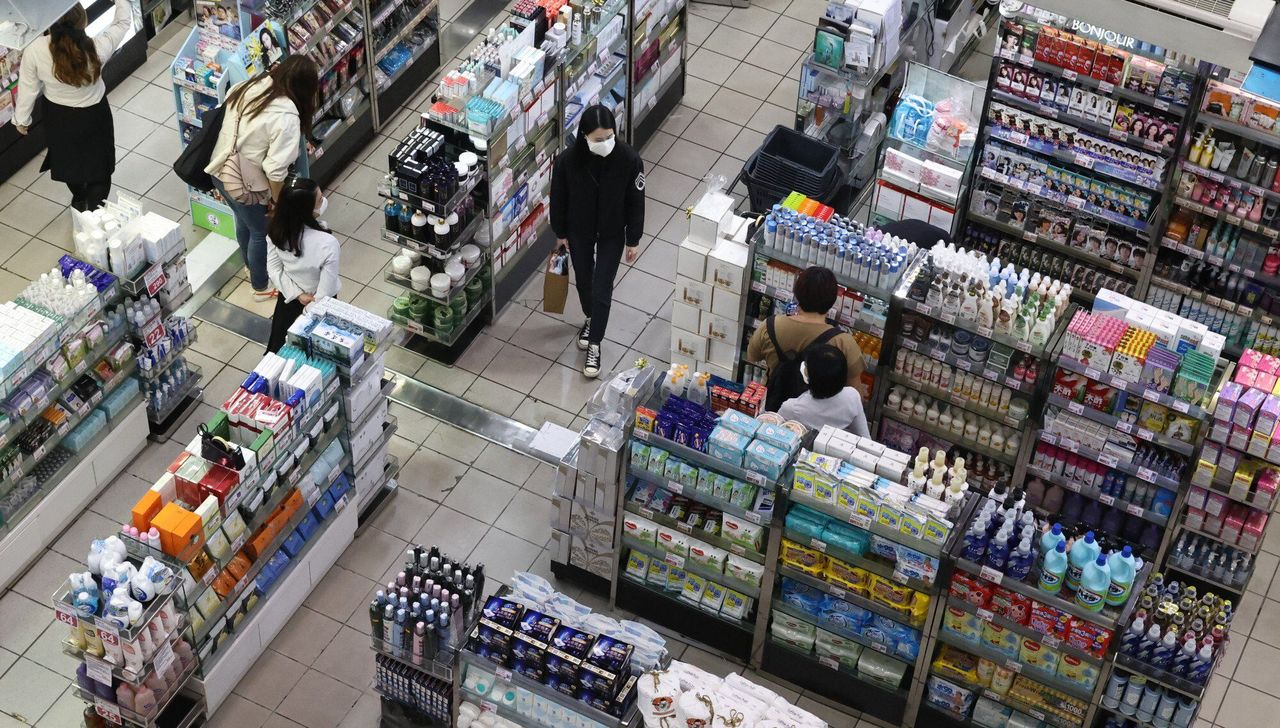Hong Kong News

Hong Kong retail sales plunge 14.6 per cent in February, sharpest drop in 19 months
Hong Kong retail sales plunged 14.6 per cent in February, the sharpest rate in 19 months under stringent social-distancing curbs amid the city’s fifth wave of Covid-19, with an industry leader predicting a “bleak” outlook for businesses and a looming closure of shops.
The year-on-year decline to HK$25.2 billion (US$3.2 billion) in sales showed the effects of tightened anti-epidemic measures put in place to cope with a rapidly worsening health crisis, a government spokesman said on Thursday.
“This led to a drastic fall in people flow and weaker consumption sentiment,” he said. “The local epidemic has shown signs of easing of late, [but] the retail sector will continue to face notable pressure in the near term.”
This is the worst retail sales have fared since July 2020, when it slumped 23.1 per cent.
The government said combining sales figures from the first two months of this year would be a better reflection of how the retail market had performed, given the Lunar New Year factor.
During that period, retail sales shrank 4.9 per cent although supermarkets, with a growth of 8.2 per cent, had the best showing. Medicine and cosmetics sales also increased, jumping 5 per cent. This came on the back of residents’ panic buying ahead of a rumoured lockdown in February for mass testing against Covid-19.
Of February’s sales, 10.8 per cent came from online transactions, having grown 50 per cent from a year ago.
The fifth wave of coronavirus infections in the city at the end of last year led to authorities putting strict curbs on businesses. Measures included a 6pm curfew on all dine-in services at restaurants, a suspension of entertainment and sports facilities and a two-person public gathering limit.
Flight bans on nine countries – Australia, Canada, France, India, Nepal, Pakistan, the Philippines, Britain and the United States – were also imposed in early January, but are due to be lifted on Friday.
The launch of a vaccine pass in February, requiring people aged 12 and above to be inoculated with at least one dose when entering certain premises, also caused footfall at places like malls and restaurants to dwindle.
Many restaurants have been forced to shut due to staff infections and quarantine rules. Other retailers are struggling to stay afloat, given the curtailed operating hours.
Most anti-pandemic curbs are set to remain until April 20, although the government said it planned to relax the social-distancing measures gradually from April 21.
Annie Tse Yau On-yee, chairman of the Hong Kong Retail Management Association, said the outlook remained bleak for the months of March and April despite the expected easing of rules.
 An industry leader has predicted that more shops will close down in April.
An industry leader has predicted that more shops will close down in April.
“Economic gloom for the retail market is at its worst, with a weaker consumption sentiment,” she said.
Tse urged landlords to consider cutting rent as retail businesses had seen sales drop by more than half during the recent outbreak.
In a survey conducted by the association last month that involved 3,800 shops totalling 67,000 frontline employees, 24 per cent of respondents said they would shut down permanently, while 30 per cent indicated they were temporarily closing in April.
Financial Secretary Paul Chan Mo-po predicted in a blog post on Sunday that the economy contracted in the first quarter of the year, reversing a recovery in the second half of last year.
The city’s pandemic-hit economy had turned the corner in the first quarter of 2021 when it marked the end of six consecutive quarters of economic decline.
In a bid to boost retail sales, authorities will hand out HK$10,000 (US$1,279) consumption vouchers in April.
Tse stressed that consumers would be “more cautious” about spending, adding that she believed the e-vouchers would not help much.











